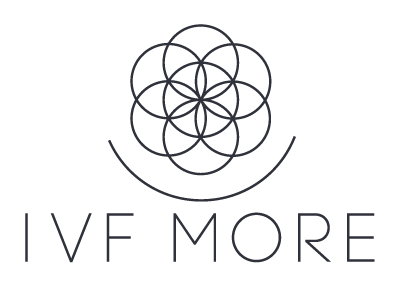Does Stress Affect Egg Quality? The Mind-Body Connection in Fertility
July 2025

For many individuals and couples undergoing infertility treatment, the emotional toll is often as challenging as the physical process. Psychological stress, whether related to the treatment itself or personal circumstances, is a significant yet underestimated factor in fertility. Research shows that chronic stress can affect hormonal regulation, ovarian function, and even lead to conditions like psychological stress-induced anovulation—a lack of ovulation due to high emotional stress.
Understanding the Role of Stress in Fertility
Stress affects fertility in multiple ways. It alters the hypothalamic-pituitary-ovarian (HPO) axis, a vital hormonal system responsible for regulating ovulation and menstrual cycles. Disruptions in this axis can lead to irregular ovulation or complete suppression of it. Additionally, stress activates the sympathetic nervous system, which may impact the ovarian sympathetic nerves, reducing blood flow to the ovaries and interfering with follicle development.
The Science of Stress and Egg Quality
The relationship between stress and egg quality is deeply rooted in biology. Emotional and physical stress can trigger an increase in cortisol and adrenaline levels. Elevated cortisol, a primary stress hormone, negatively affects the hormonal balance necessary for healthy egg development. These hormonal disruptions can impair oocyte maturation and quality, ultimately reducing the chances of successful fertilization.
Numerous studies indicate that chronic stress may also lead to increased oxidative stress—a condition where free radicals overwhelm the body’s antioxidant defenses. Oxidative stress can damage the mitochondria in the egg cells, compromise DNA integrity, and accelerate cellular aging. This results in poor egg quality and lowers the likelihood of a healthy embryo.
In vitro fertilization (IVF) success depends heavily on the viability of retrieved eggs. When stress levels are high, patients often see lower success rates, as stress can negatively affect IVF outcomes by impairing both egg health and uterine receptivity.
The Mind-Body Connection: How Emotional Wellbeing Influences Egg Quality
Mental health and fertility are closely linked. Emotional stress can trigger behavioral changes that further compound fertility issues—poor sleep, unhealthy eating habits, and withdrawal from physical activity. These lifestyle factors, in turn, affect egg quality by disrupting hormonal balance and increasing inflammation.
Practicing stress-reduction techniques is not only beneficial for overall mental health but can also directly influence fertility outcomes. Activities such as yoga, meditation, acupuncture, and cognitive behavioral therapy (CBT) have been shown to reduce stress and improve reproductive hormone levels. In fact, some research suggests that patients who engage in structured mind-body programs during IVF cycles experience higher pregnancy rates.
By reducing stress levels, individuals may also enhance blood flow to the reproductive organs, optimize hormonal communication, and reduce oxidative damage—all critical for producing high-quality eggs. This holistic approach supports the idea that emotional wellbeing is not a separate component but a vital aspect of reproductive health.
Egg Restoration and Stress: A Holistic Approach to Improving Egg Quality
For individuals experiencing poor egg quality, especially due to age or stress-related factors, advanced IVF techniques like egg restoration offer a new horizon. At IVF MORE®, we combine cutting-edge science with a deep understanding of the mind-body connection to support natural fertility restoration.
Our protocol includes metabolic diagnosis to assess the cellular and mitochondrial health of each egg. Once compromised eggs are identified, we apply a unique restoration technique that uses cytoplasmic transfer—infusing the egg with cellular factors from the patient’s own body to restore energy levels and enhance viability. This process also involves exposure to magnetic fields, which have been shown to support proper cell division and reduce genetic abnormalities.
By restoring energy and function to eggs at the cellular level, IVF MORE® offers patients a way to improve egg quality that goes beyond standard IVF. This technique is especially beneficial for those who have undergone emotional or physical stress, as it addresses the biological consequences of stress directly.
Moreover, our approach incorporates emotional support as a key part of treatment. We recognize that reducing stress is essential not only for emotional health but also for biological success. Through integrated support programs, relaxation therapies, and stress management guidance, patients are empowered to improve their mental wellbeing alongside their fertility outcomes.
Why Choose Egg Restoration Over Traditional Methods?
Traditional IVF primarily focuses on selecting the best eggs available at the time of retrieval but does little to enhance their quality. This approach can be limiting for individuals over 35, those with a history of IVF failures, or those advised to pursue egg donation due to poor egg quality.
Egg restoration, on the other hand, aims to revitalize your own oocytes. By improving mitochondrial function and reducing stress-induced cellular damage, this technique increases the chances of achieving a healthy pregnancy using your own eggs. It is a viable option for individuals looking to avoid or delay egg donation while still pursuing parenthood.
The combination of regenerative medicine, metabolic diagnostics, and magnetic field technology makes IVF MORE® a truly advanced IVF technique. It is designed for individuals who want to address the root causes of infertility and take a proactive, science-backed approach to improving egg health.
Conclusion
Stress is more than just a feeling—it’s a physiological state that can significantly impact fertility. From disrupting hormone levels to impairing egg quality, chronic and emotional stress can negatively affect IVF outcomes and reduce the chances of a successful pregnancy.
Understanding the mind-body connection in fertility opens the door to new possibilities. By focusing on both emotional wellbeing and biological restoration, IVF MORE® empowers individuals to reclaim control over their fertility journey.
Whether you’re exploring ways to improve egg quality after 40, looking into advanced IVF techniques, or simply seeking support on your path to a healthy baby, addressing stress is an essential step.
At IVF MORE®, we believe that true fertility care must consider the whole person—mind, body, and biology. Book a consultation today and discover how our holistic, innovative approach can help turn your hopes into a healthy pregnancy.
